Samsung’s Galaxy S21 5G is the least expensive of the company’s current high-end S21 series. Here we examine the version based on Qualcomm’s Snapdragon 888 chipset, which is sold in the US and China (we’ve previously reviewed the global version, powered by Samsung’s own Exynos chip).
The Samsung Galaxy S21 5G (Snapdragon) features a 120 Hz 6.2-inch AMOLED screen with a hole punch for the selfie camera. It has 8 GB of memory with either 128 or 256 GB of storage. There are three cameras on the back; the main wide and ultra-wide modules have 12 MP sensors. The tele camera starts quite wide (76˚ field of view) but uses its 64 MP sensor to retain detail while zooming in, with the output binned down to 12 MP.
Read on to find out how the S21 5G (Snapdragon) performs in our DXOMARK Camera tests.
Key camera specifications:
- Standard-wide: 12 MP 1/1.76-inch sensor with 1.8μm pixels, 26 mm-equivalent f/1.8 lens, dual-pixel PDAF, OIS
- Ultra-wide: 12 MP sensor with 1.4μm pixels, 13 mm-equivalent f/2.2 lens
- Tele: 64 MP 1/1.72-inch sensor with 0.8μm pixels, 29 mm-equivalent f/2.0 lens
- LED flash
- 8K at 24 fps, 4K at 60 fps (tested), HDR10+
About DXOMARK Camera tests: For scoring and analysis in our smartphone camera reviews, DXOMARK engineers capture and evaluate over 3000 test images and more than 2.5 hours of video both in controlled lab environments and in natural indoor and outdoor scenes, using the camera’s default settings. This article is designed to highlight the most important results of our testing. For more information about the DXOMARK Camera test protocol, click here. More details on how we score smartphone cameras are available here.
Test summary
Scoring
Sub-scores and attributes included in the calculations of the global score.
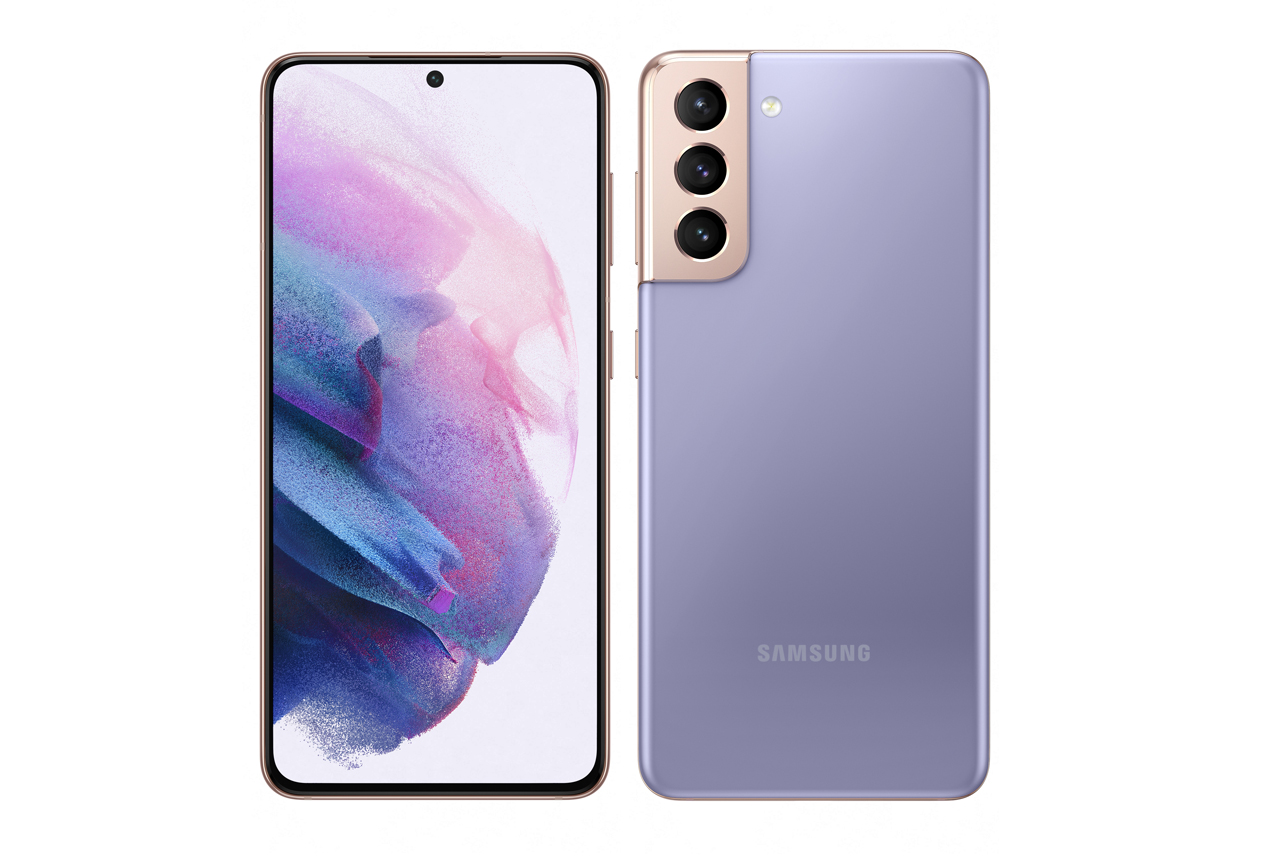
Samsung Galaxy S21 5G (Snapdragon)


Use cases & Conditions
Use case scores indicate the product performance in specific situations. They are not included in the overall score calculations.
Outdoor
Photos & videos shot in bright light conditions (≥1000 lux)
Indoor
Photos & videos shot in good lighting conditions (≥100lux)
Lowlight
Photos & videos shot in low lighting conditions (<100 lux)
Friends & Family
Portrait and group photo & videos
 114th
114th 21st
21stPros
- Fairly neutral white balance and accurate color rendering in stills and video
- Stills exposure accurate in bright to moderate light
- Detail is high in stills and video in bright to moderate light
- Mostly accurate depth estimation in portrait mode, natural blur effect
- Ultra-wide field of view very wide
- Stabilization works well when walking
- Video autofocus usually accurate
Cons
- Autofocus failures and instability in photo mode
- Luminance and chroma noise often visible in stills
- Limited dynamic range in backlit portrait scenes
- Hue shift, color quantization, flare, color fringing, aliasing, moiré, ringing artifacts (especially in videos)
- Poor image quality at medium and long zoom ratios, low detail and visible noise
- Noise usually visible in videos in moderate to low light
With an overall score of 119, the Samsung Galaxy S21 5G (Snapdragon) falls a bit short of the top-ranked phones in our database but is competitive with devices in the Premium ($600-799) price segment. Apple’s iPhone 12 outscores it by just a few points (122), while the global (Exynos) version of the S21 comes in a few points lower (116).
The Samsung Galaxy S21 5G (Snapdragon) main camera captures generally pleasing photos under most conditions. Color is particularly accurate. Its photo score of 124 is not bad for its price class but there are devices that outscore it, such as the iPhone 12 (132). Issues with autofocus reliability, noise, and limited dynamic range hold the score down.
The Zoom composite score of 73 is respectable, though it’s far from the best-scoring phones in our ranking: wide performance is very good, but the tele end of the zoom is less impressive. The video score of 101 is acceptable but a bit a lackluster compared to the better performers in its class (such as the iPhone 12, which scores 112) .
The Samsung Galaxy S21 5G (Snapdragon) is broadly competitive with other phones in its price category and delivers generally satisfying imaging performance, but it doesn’t push the limits of what a phone in its class can do.
Below you can find detailed analyses and image samples for all Photo, Zoom, and Video sub-attributes, along with comparisons with one of the Samsung Galaxy S21 5G (Snapdragon)’s competitors, the Apple iPhone 12, and with the international version Samsung Galaxy S21 5G (Exynos).
Photo
The Samsung Galaxy S21 5G (Snapdragon) achieves a Photo score of 124. In this section, we take a closer look at each sub-attribute and compare image quality against competitors.

Exposure and Contrast
Samsung Galaxy S21 5G (Snapdragon)
83
111
In these tests we analyze target exposure, contrast, and dynamic range, including repeatability across a series of images. Tests are undertaken in a wide range of light conditions, including backlit scenes and low light down to 1 lux. The score is derived from a number of objective measurements in the lab and perceptual analysis of real-life images.
These samples show the Samsung Galaxy S21 5G (Snapdragon)’s exposure performance in backlit conditions compared to the competition.

Color
Samsung Galaxy S21 5G (Snapdragon)
102
107
In these tests we analyze color rendering, skin tones, white balance, and color shading, including repeatability across a series of images. The score is derived from a number of objective measurements in the lab and perceptual analysis of real-life images.
These samples show the Samsung Galaxy S21 5G (Snapdragon)’s color performance in outdoor light compared to the competition.

Autofocus
Samsung Galaxy S21 5G (Snapdragon)
90
109
In these tests we analyze autofocus accuracy and shooting time, including repeatability, in the lab. We test focus failures, depth of field, and tracking of moving subjects using perceptual analysis of real-life images.
This graph shows autofocus performance of the Samsung Galaxy S21 5G (Snapdragon) in outdoor 1000 lux light compared to two competitors.
In these tests we analyze texture on faces and objects, including objects in motion, in a range of light conditions, using several lab test setups and perceptual analysis of real-life images.
These samples show the Samsung Galaxy S21 5G (Snapdragon)’s texture performance in outdoor light compared to the competition.
This graph shows the Samsung Galaxy S21 5G (Snapdragon)’s texture measurements in the lab.

Noise
Samsung Galaxy S21 5G (Snapdragon)
71
102
In these tests we analyze noise on faces and objects, including objects in motion, in a range of light conditions, using several lab test setups and perceptual analysis of real-life images.
These samples show the Samsung Galaxy S21 5G (Snapdragon)’s noise performance in low light compared to the competition.
For these tests we switch to the camera’s bokeh or portrait mode and analyze depth estimation, bokeh shape, blur gradient, and repeatability, as well as all other general image quality attributes mentioned above. The score is derived from perceptual analysis of real-life images.
These samples show the Samsung Galaxy S21 5G (Snapdragon)’s bokeh simulation in daylight compared to the competition.

Night
Samsung Galaxy S21 5G (Snapdragon)
59
82
In these tests we shoot a selection of images in pitch-black darkness as well as with city lights in the background providing some illumination. We shoot sample images with the camera at default settings in both flash-auto and flash-off modes. We analyze all image quality attributes but we pay particular attention to exposure, autofocus, and color. We do not test night modes that have to be activated manually.
These samples show the Samsung Galaxy S21 5G (Snapdragon)’s night performance in flash-auto mode compared to the competition.

Artifacts
Samsung Galaxy S21 5G (Snapdragon)
63
77
In these tests we check images for optical artifacts such as vignetting, flare, lens softness in the corner, distortion, and chromatic aberrations, as well as for processing artifacts such as ghosting and fusion errors, hue shift, and ringing.
This sample shows hue shift, color fringing, aliasing, and maze and moiré artifacts.

Preview
Samsung Galaxy S21 5G (Snapdragon)
60
80
In these tests we analyze the image quality of the preview image and the differences between preview images and captured images, particularly in terms of exposure, dynamic range, and bokeh effect. We also check the smoothness of the field-of-view changes in the preview image when zooming with both buttons or when using the pinch-zoom gesture.
These samples show the Samsung Galaxy S21 5G (Snapdragon)’s preview performance in portrait mode.
Zoom
The Samsung Galaxy S21 5G (Snapdragon) achieves a Zoom score of 73. The Zoom score includes the tele and wide sub-scores. In this section, we take a closer look at how these sub-scores were achieved and compare zoom image quality against competitors.

Wide
Samsung Galaxy S21 5G (Snapdragon)
46
58
In these tests we analyze the performance of the ultra-wide camera at several focal lengths from 12 to 20 mm. We look at all image quality attributes, but we pay particular attention to such artifacts as chromatic aberrations, lens softness, and distortion.
These samples show the performance of the Samsung Galaxy S21 5G (Snapdragon)’s ultra-wide camera in outdoor conditions compared to the competition.

Tele
Samsung Galaxy S21 5G (Snapdragon)
91
140
In these tests we analyze all image quality attributes at focal lengths from approximately 40 to 300 mm, paying particular attention to texture and detail. The score is derived from a number of objective measurements in the lab and perceptual analysis of real-life images.
These samples show the Samsung Galaxy S21 5G (Snapdragon)’s and its competitors’ tele performance outdoors at a 90 mm-equivalent zoom setting.
Video
The Samsung Galaxy S21 5G (Snapdragon) achieves a Video score of 101. A device’s overall Video score is derived from its performance and results across a range of attributes in the same way as the Photo score. In this section, we take a closer look at these sub-scores and compare video quality against competitors.
In our Video tests we analyze the same image quality attributes as for still images, such as white balance and color rendering, but we also include such temporal aspects as speed, and smoothness and stability of exposure, and autofocus.
NOTE: The sample video clips in this section are best viewed at 4K resolution.

Exposure and Contrast
Samsung Galaxy S21 5G (Snapdragon)
90
118
These video stills show the Samsung Galaxy S21 5G (Snapdragon)’s video exposure characteristics in low light compared to the competition.

Color
Samsung Galaxy S21 5G (Snapdragon)
95
107
These video stills show the Samsung Galaxy S21 5G (Snapdragon)’s video color in indoor light.

Autofocus
Samsung Galaxy S21 5G (Snapdragon)
89
109
These sample clips show the Samsung Galaxy S21 5G (Snapdragon)’s video autofocus performance in low light.

Texture
Samsung Galaxy S21 5G (Snapdragon)
70
99
These video stills show the Samsung Galaxy S21 5G (Snapdragon)’s video texture in indoor light compared to the competition.

Noise
Samsung Galaxy S21 5G (Snapdragon)
69
105
These sample clips show the Samsung Galaxy S21 5G (Snapdragon)’s video noise performance in indoor light.

Artifacts
Samsung Galaxy S21 5G (Snapdragon)
76
85
For video artifacts, we check for the same kinds of artifacts mentioned in the Photo section, along with such video-specific artifacts as frame rate variation in different light conditions, judder effect, and moving artifacts (artifacts such as aliasing, color quantization, and flare can often be more intrusive when moving than in a still image).
This video still shows ringing artifacts.

Stabilization
Samsung Galaxy S21 5G (Snapdragon)
98
103
In these tests we analyze residual motion when handholding the camera during recording, as well as when walking and running with the camera. We also look for stabilization artifacts such as jello effect, sharpness differences between frames, and frame shift (abrupt changes of framing).
These sample clips show the Samsung Galaxy S21 5G (Snapdragon)’s video stabilization in laboratory conditions.


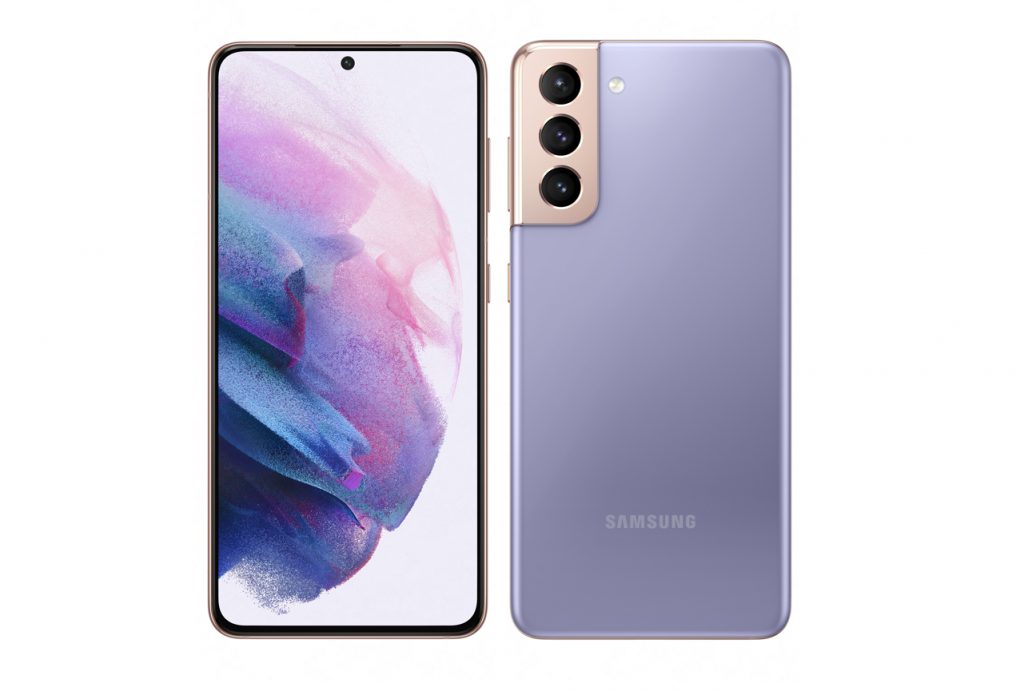
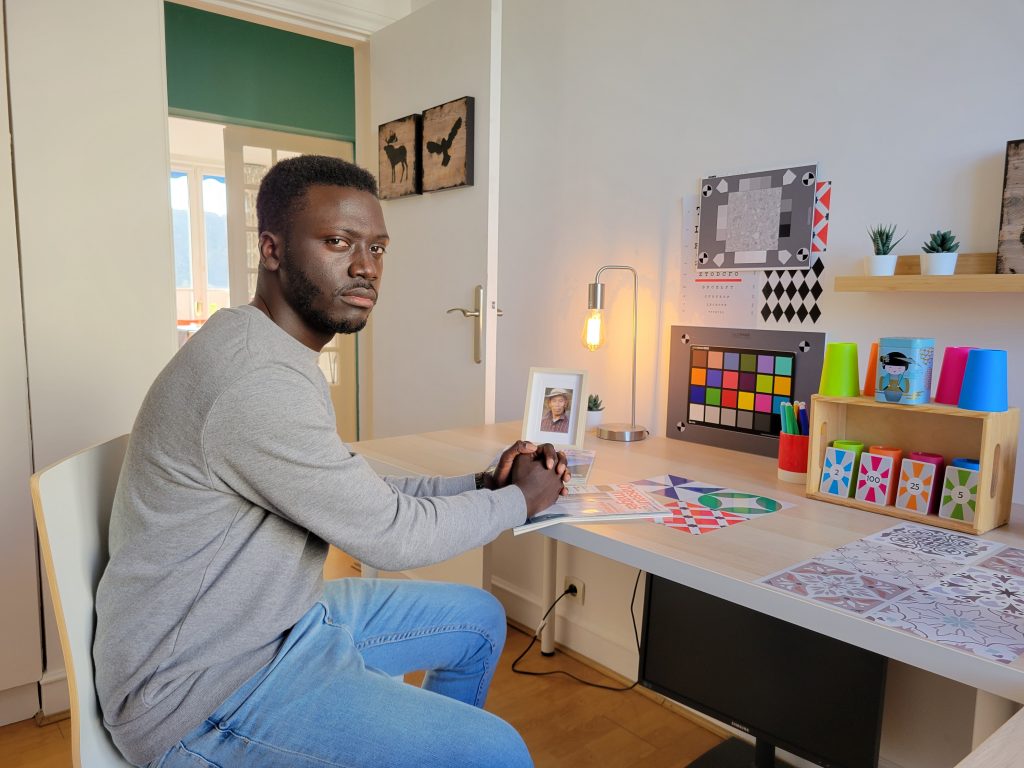






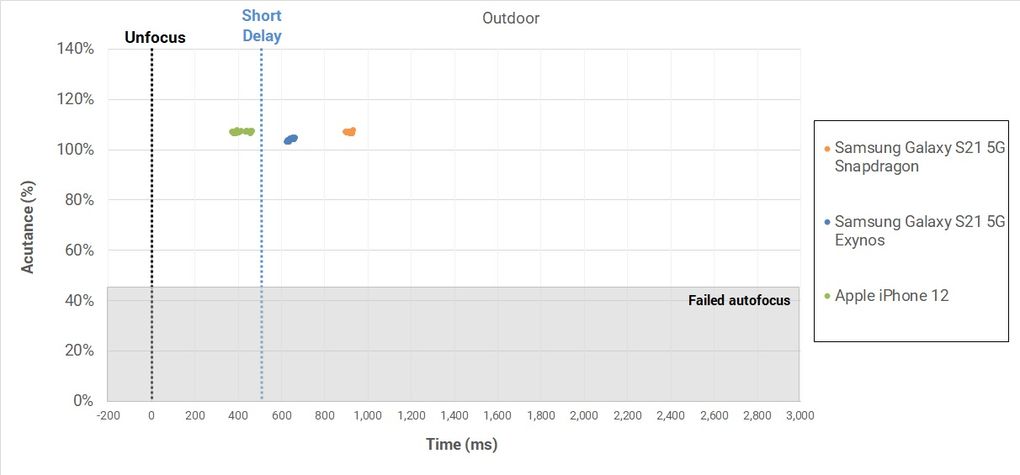



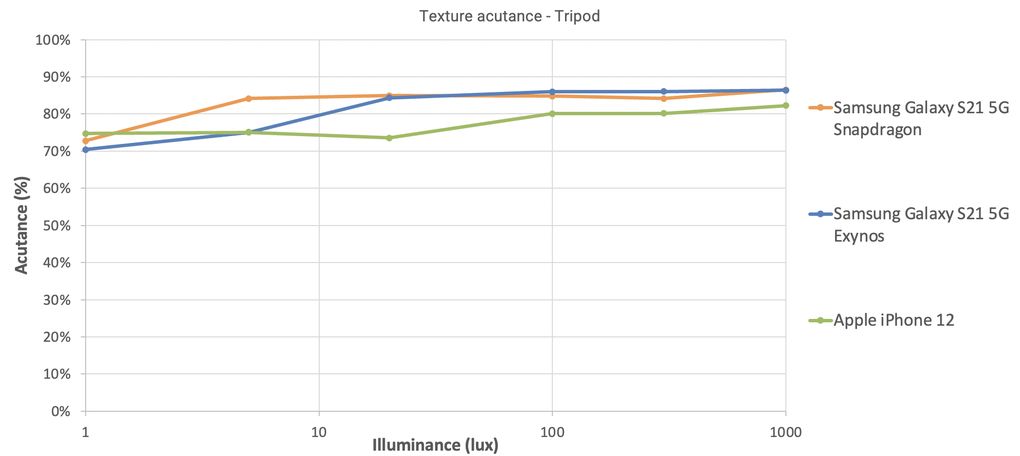
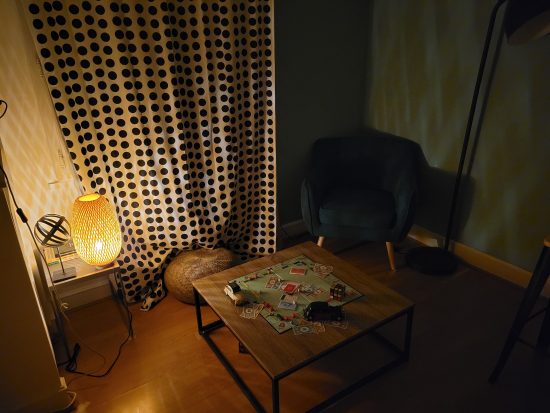
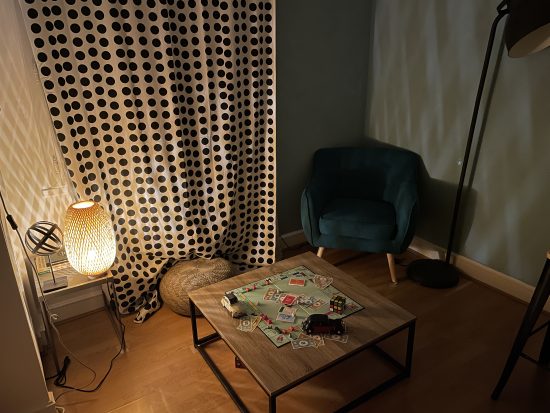
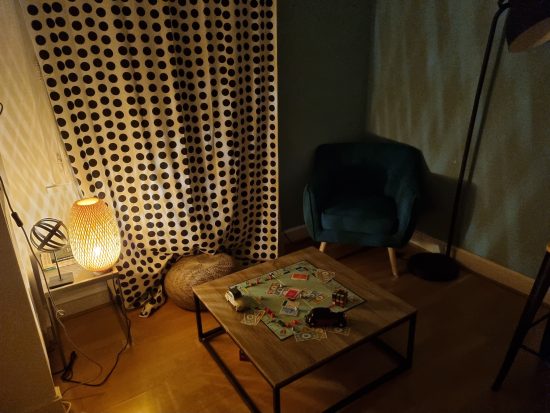







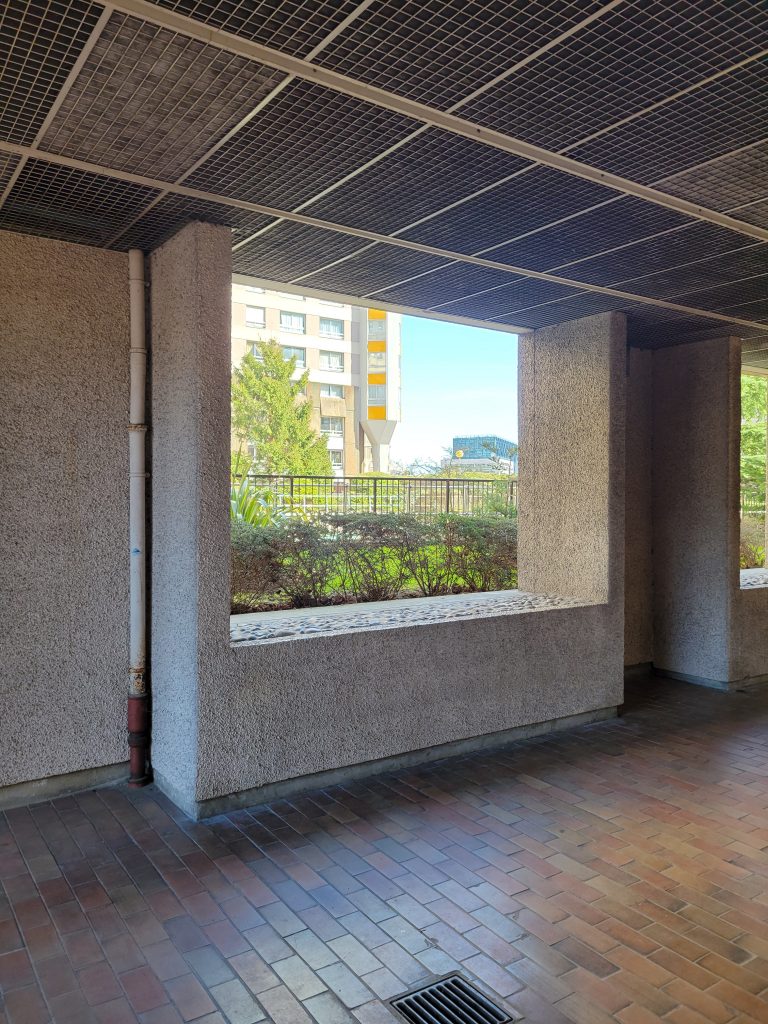
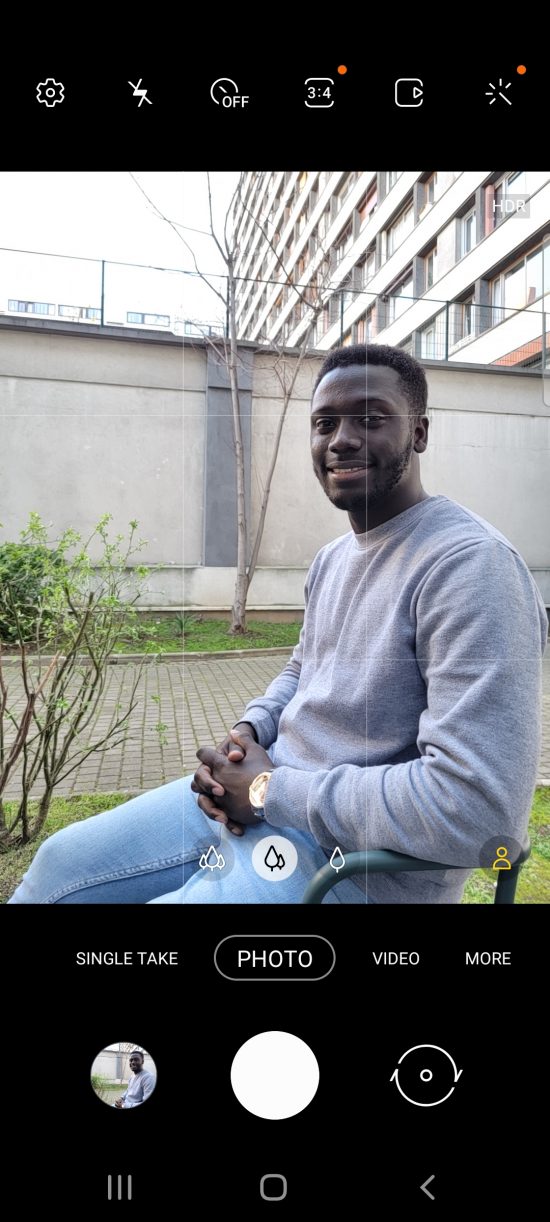

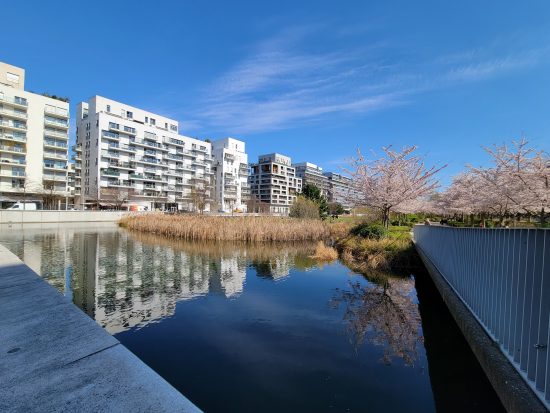
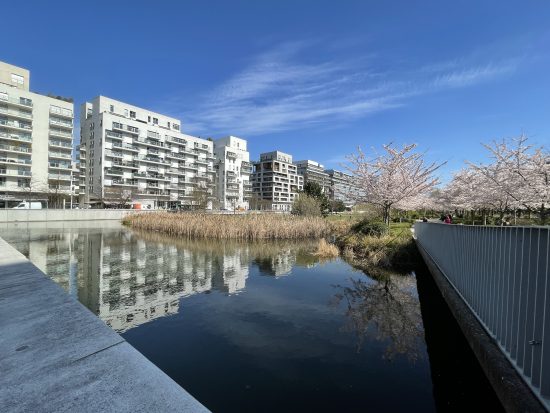
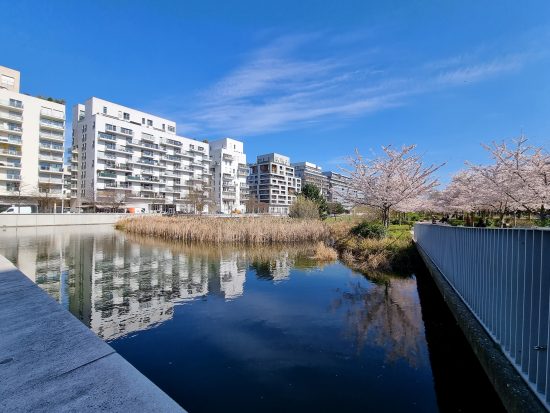






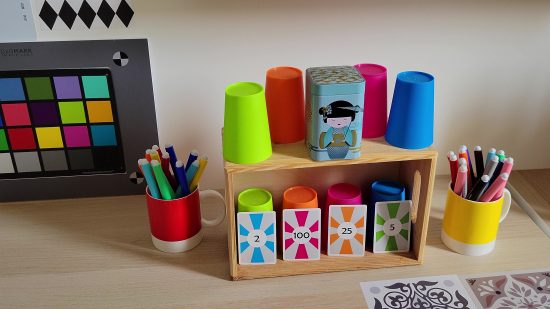
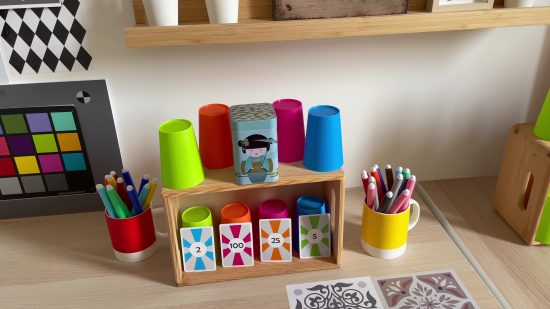
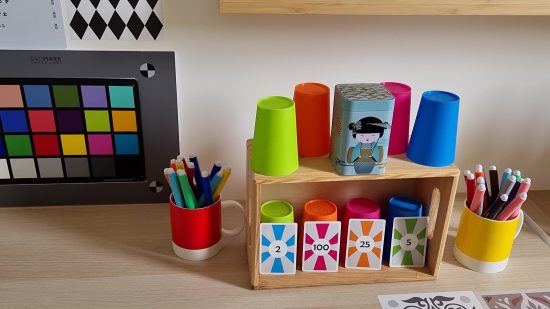

DXOMARK encourages its readers to share comments on the articles. To read or post comments, Disqus cookies are required. Change your Cookies Preferences and read more about our Comment Policy.